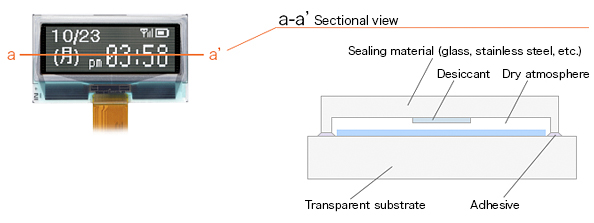What is an OLED? How do OLEDs work? An OLED is made by stacking thin film layers of organic materials between two electrodes on a transparent substrate.
How does an OLED work?
OLED devices operate when the energy, which is generated by carrying electrons and holes away respectively in the functional organic thin film layers, recombine in a light emitting layer. Essentially, this recombination changes energy into the light.
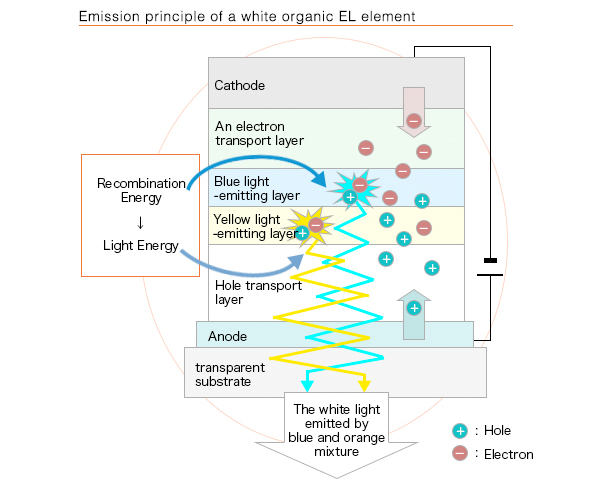
White OLEDs
Futaba’s white OLEDs emit white light by the two-color combination of blue and orange light-emitting materials.
The chromaticity of white color normally will change over time because the individual emission lifetime for each color is different.
On the other hand Futaba’s OLEDs can achieve a long lifetime for the white light emission with the emphasis on the OLED layers’ construction (thickness and other material aspects), as generally shown above.
Full-color RGB OLEDs
Futaba’s color OLED displays use our white OLED element in combination with color filters. By using our white OLED element along with a color filter, we can achieve longer lifetimes (and higher brightness) than color OLEDs that use individual organic materials of color. Organic materials of color have individual decay lifetimes, with BLUE having the shortest lifetime. The result will be a color OLED that will exhibit a color shift over time.
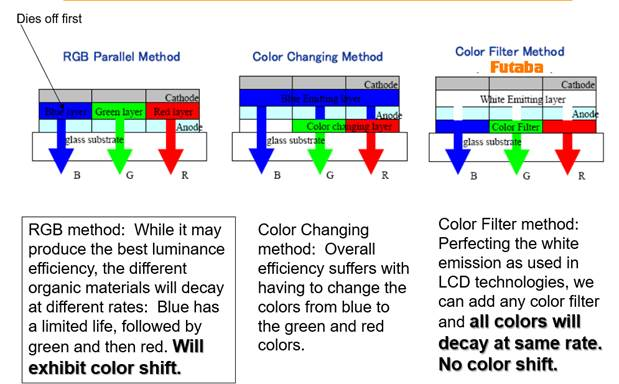
OLED Response Time
OLED response speed is not influenced by either low or high temperatures.
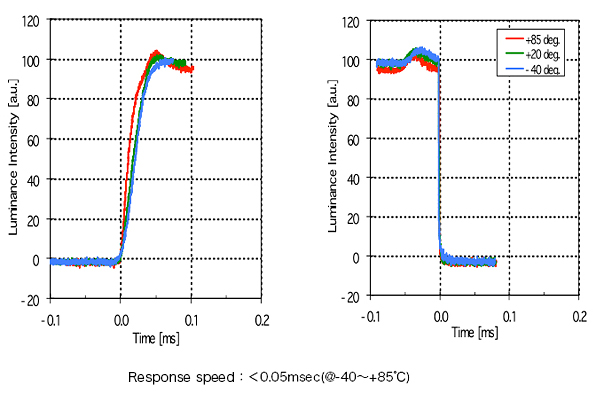
OLEDs contrast ratio and viewing angle
OLEDs have a sharp display and a wide viewing angle. OLEDs have a higher contrast ratio than TFT displays. OLEDs have a wider viewing angle than TFT displays.
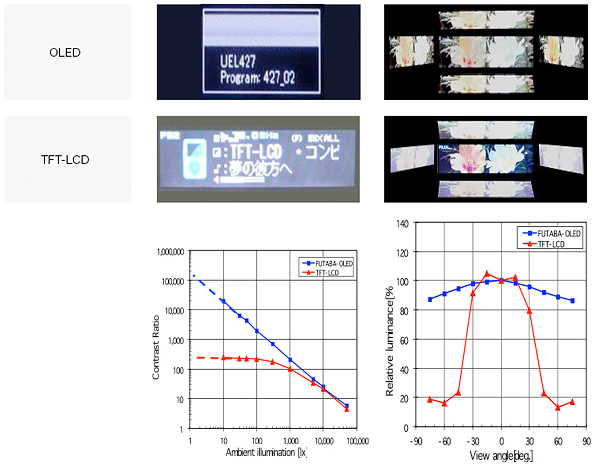
OLED Power Consumption
Power consumption for an OLED will depends on the lighting rate. The lighting rate is defined as number of pixels that are ON.
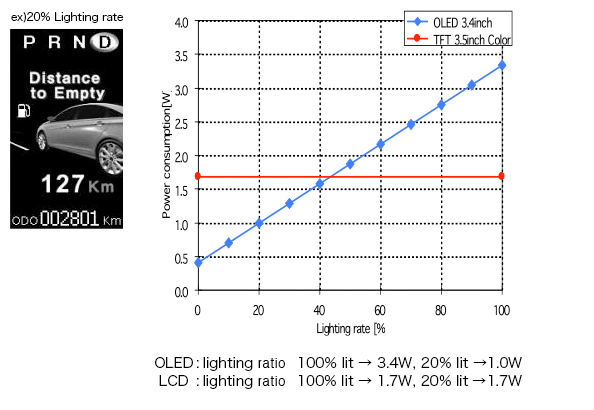
Consumer OLED Applications
Futaba OLED displays are used in various products in the consumer market – including wearables, communications and monitoring equipment.
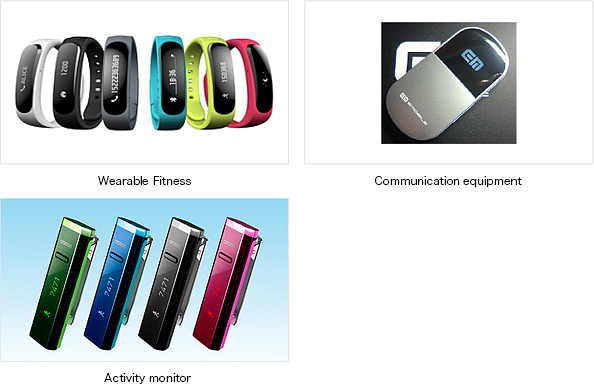
Automotive OLEDs Applications
The long lifetime of Futaba OLED displays are a major reason why they are used in automotive applications.

Industrial OLED Applications
Futaba has a long history of supplying various display technologies to the industrial market. This tradition continues with manufacturers choosing to use Futaba OLED displays in their product.

Inquiries for OLED displays
We would love to talk to your about your OLED needs. Please reach out to us via our Contact Us page.

